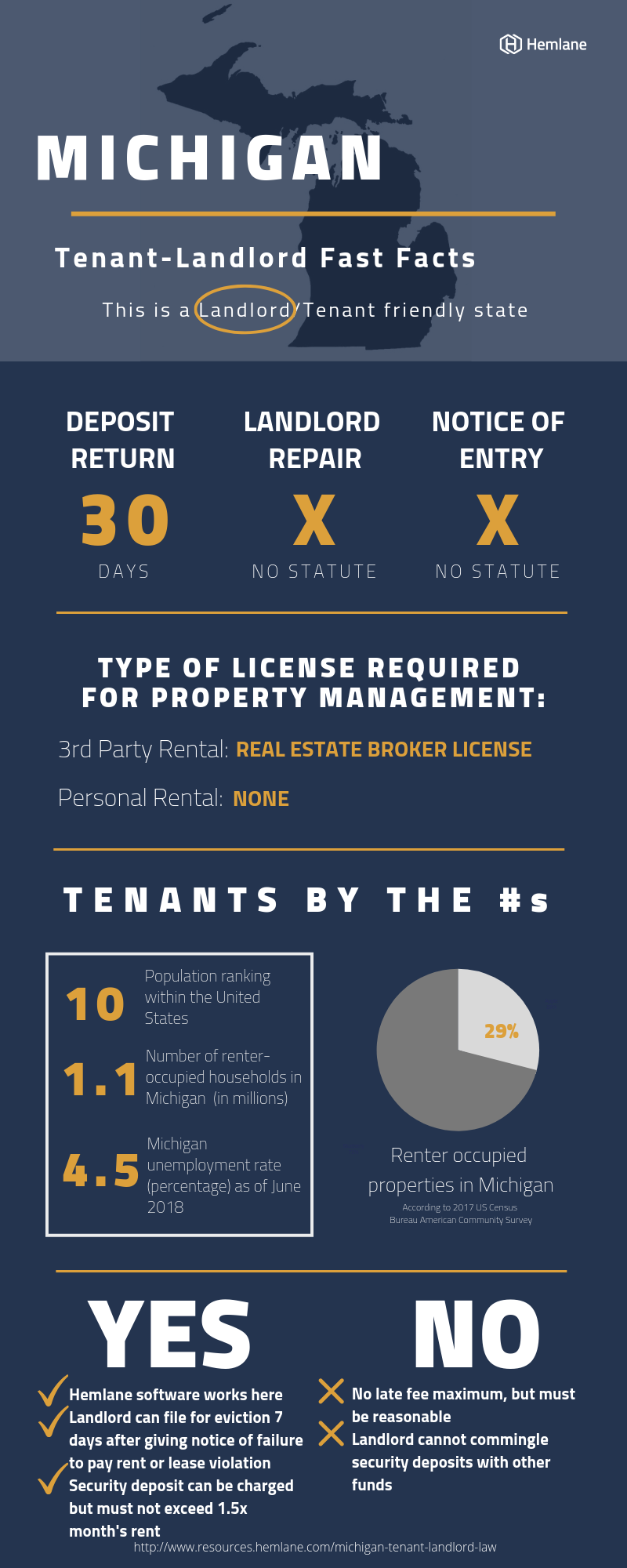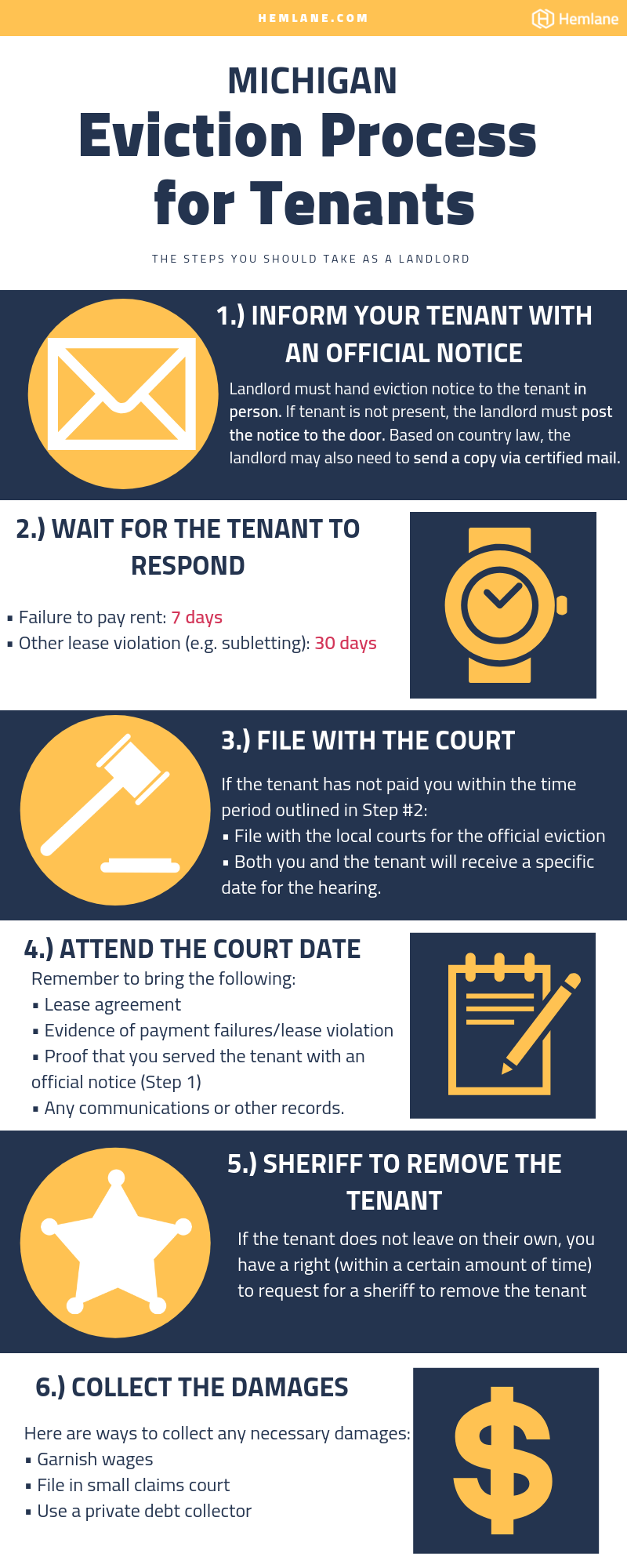Michigan Tenant-Landlord Law

Fair Housing
The Fair Housing Act was created in order to ensure that everyone is treated equally during the housing process. It protects tenants from discrimination when seraching for a rental property. At the federal level the Fair Housing Act protects the following classes…
- Race
- Color
- National Origin
- Religion
- Sex
- Familial Status
- Disability
Learn about fair housing at the federal level here /landlord-must-know-fair-housing/
In addition to federal fair housing laws, the Michigan Elliott-Larsen Civil Rights Act prohibits discrimination based on
- Marital status
- Age
(1976 PA 453)
Security Deposits
- The collection of security deposits in Michigan isn’t required, but most landlords require them to prove a tenant’s financial stability and guarantee a payment for damaged property
- Security deposits must not be more than 1.5x a month’s rent. (§§ 554.602)
- A landlord has 30 days post move out to either return the deposit, or provide an itemized list of damages and how the funds will be used to fix such repairs. (§§ 554.610)
- If a landlord doesn’t inform the tenant of such repair costs within 30 days, it can be claimed that there are no such damages due and the deposit must be returned in full (§§ 554.610)
- Failure of the landlord to comply fully constitutes waiver of all claimed damages and makes him liable to the tenant for double the amount of the security deposit retained (§§ 554.613)
- A separate bank account for the deposit is not required, but it must be placed in a licensed and regulated bank. (§§ 554.604)
- In Michigan, there is no required interest owed to the tenant from the deposit.
Rent and Late fees
- In Michigan, there are no statutes regarding late fee maximums, grace periods, nor notices involving rent increase.
- Rent is due as stated in the lease.
- Landlords are allowed to accept rent payments of any form.
- The tenant is allowed to withhold rent if the property is deemed uninhabitable by a government agency or department, and a reasonable amount of time has passed following the notification for the landlord to repair.
- This amount, however, must be paid to this enforcement agency and thus, the agency may pay escrow account funds to the landlord to defray the cost of correcting the violations. The unspent escrow funds must be returned if the tenant moves out prior to the repairs being made. (§§ 125.530)
Notices and Entry
- If the landlord wishes to terminate the lease early, they have to give a notice period of 30 days if is a month-to-month lease. (§§ 554.134(1))
- If the lease is on a week-to-week basis, the landlord must notify the tenant 7 days prior to early eviction. (§§ 554.134(1))
- If the lease is yearly with no end date, the landlord must notify the tenant 1 year prior to early eviction. (§§ 554.134(3))
- There are no statutes regarding notice before a landlord’s entry for repairs, emergencies, or property showings.
- If a landlord has strong evidence that a tenant has abandoned a property he/she may enter the property without notice. (§§ 600.2918(3)(c))
Disclosures
- A landlord is required to disclose any known presence of lead paint on the property. If there is a presence of lead paint in the unit or common area, the lease must include a federally-approved attachment on lead poisoning prevention.
- Rental agreements must noticeably include notification of the Michigan Truth in Renting Act, see specific text here (§§ 554.1634)
Eviction Laws

- When it is failure to pay rent, the tenant has 7 days to pay you otherwise the eviction notice can be filed with the courts.
- When there is another lease violation (e.g. subletting), the tenant has 30 days to resolve the violation from the point that the eviction notice is served. Otherwise the eviction notice will be filed with the courts.
For more information on Michigan Landlord Tenant laws please visit their website here.
As the situation with COVID-19 continues to evolve, the moratorium on foreclosures and evictions will continue to impact millions of rental properties across the country. For the most up to date information on this legislation, as well as to see if your city or county has additional directives in place, please contact your local representative.




